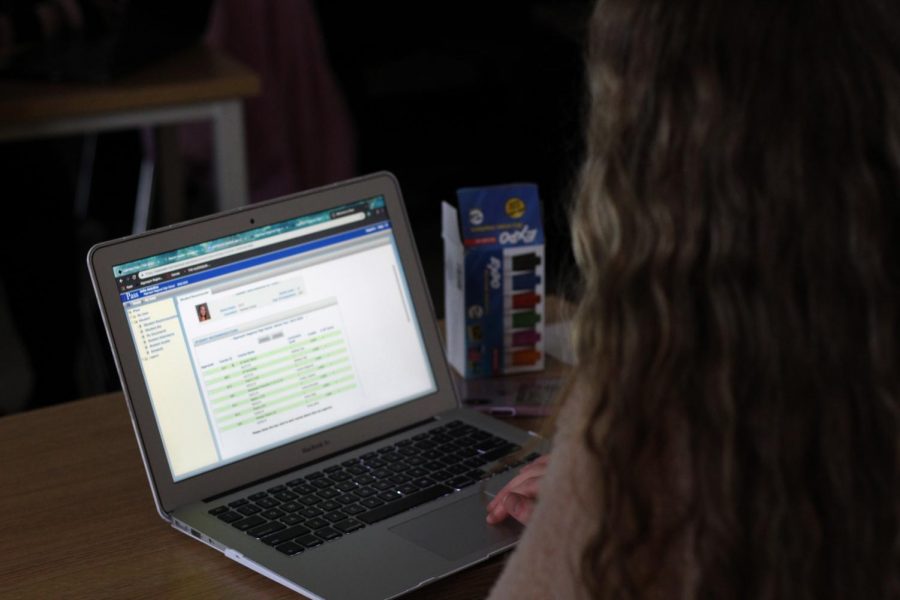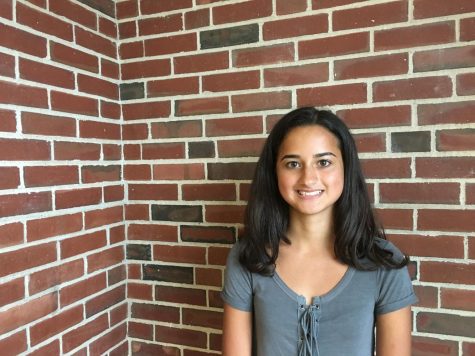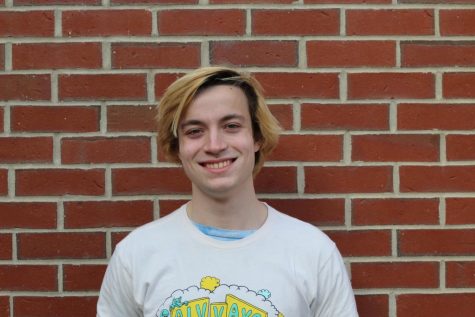New array of courses offered for 2019-2020 school year
New courses offered next year include Social Media Marketing, Positive Psychology, Digital Photojournalism, Spanish History Through Film, Race in America and The Evolution of Comedy and Satire in Film, Literature, and the Media
Students picking courses for next year are now offered a new array of classes.
March 11, 2019
Six new elective classes spanning a variety of topics and disciplines will be offered to students in the 2019-2020 school year. Course selection is being conducted through iPass until March 15.
Social Media Marketing
Social Media Marketing will be offered as an honors elective to students in grades 10, 11 and 12 who have completed Marketing with a grade of B- or higher.
According to applied arts and technology teacher Catherine Griffin, the course will explore different channels in social media which are currently influencing the business world, such as LinkedIn, Pinterest, Instagram, Facebook and Twitter. Students will also learn about social media metrics and how to perform a social media audit.
“Social media is taking over the traditional forms of marketing,” Griffin said. “In the age that you guys are growing up in, it’s incredibly important. Sometimes teenagers think that they know a lot about social media, but in terms of business and marketing, it’s very different.”
Positive Psychology
Upperclassmen will be eligible to take honors Positive Psychology, a discussion-based class aimed at teaching students how to live a meaningful life.
“We’ll be looking at things like strength, character and different topics that will help individuals reflect on their current state in life and how to hopefully improve their well being,” social studies teacher Christina Smith said.
While Algonquin already offers Psychology as a semester elective and a full-year AP course, these classes do not touch upon the emerging field of positive psychology, a field which Smith believes can offer relevant insights to students.
“I hope that [students] are immediately able to put the different skills that they’re learning and reflective techniques into their lives as soon as they leave the classroom each day,” Smith said.
Digital Photojournalism
Digital Photojournalism, returning to the curriculum for the first time since the 2010-2011 school year, will be available as an honors course to students in all grades with an interest in using photos to capture life at Algonquin and in the local community.
“There are so many incredible moments that happen here whether they are in a classroom or whether they’re in a club or whether they’re on the sports field, and I would just love to be able to create with students a wealth of images that we can look back on,” fine and performing arts teacher Michelle Sheppard.
The class will teach students how to produce high-quality images using both smartphones and cameras.
“Students will start learning about taking pictures with their phones just like many reporters are out there doing every day, and then towards the end of the course, students will be learning about when a phone is not enough to capture to a scene or a setting or a sport,” Sheppard said.
According to Sheppard, the Digital Photojournalism course will not be the same as the version taught eight years ago.
“Journalism is a very different world now than it was last time the class ran,” Sheppard said. “A lot of reporters are taking pictures on their phones…If professional news outlets can do so much with smartphones and multitasking with reporters, there’s no reason why we can’t make journalism more accessible to students.”
Spanish History Through Film
Spanish students will now have the opportunity to delve into the history of Spain and Latin America in the year-long elective Spanish History through Film, which is being offered to seniors at the honors and CP level.
In order to take the course, students must have passed the Spanish 4 final and maintained an average of a B- in Spanish 4 honors or an A- in Spanish 4 CP, ensuring that they are able to speak and understand the language at an advanced level.
“We’re not focusing on the vocabulary and the grammar,” Spanish teacher Karla Steele said. “Hopefully by now we’re going to have discussions, we’re going to write papers, [and] we’re going to have presentations on what we’ve read [and] what we’ve seen.”
Steele believes this class will give students a chance to explore topics they otherwise have limited exposure to.
“[Spanish students] always get a little glimpse of history, but it’s always this little short paragraph in their books,” Steele said. “We’re going to go in-depth.”
Race in America
Students in grades 10, 11 and 12 who are looking to further their understanding of United States history can sign up for Race in America, an honors course which examines race as a social construct and studies the experiences of the country’s racial minority groups.
“We’re going to start with the first time the word race was used publicly in the colonial era to describe different groups of people and then look at the history of how that developed,” social studies teacher Brittany Burns said. “[The class] will have a big focus on the eugenics movement and [on] attempts to include things like science and to use the legal systems and housing and access to education and all those kind of things to try to legitimize ideas of racism.”
According to Burns, the class will allow students to gain a different and more complete perspective of the nation’s past.
“When we teach US history, we talk about these things like the American dream and all of these stories of success, but we don’t often talk about a lot of the very real roadblocks that exist for people that are totally outside of their control,” Burns said.
The Evolution of Comedy and Satire in Film, Literature, and the Media
In the English department, The Evolution of Comedy and Satire in Film, Literature, and Media will be offered to juniors and seniors as both an honors and CP elective.
“We wanted to try to bring something with humor and satire into the curriculum because I think it’s something that’s missing,” English teacher Tom Alera said. “There isn’t a lot that’s funny sometimes in the literature that we have throughout our four years here, so that was one of the things that I wanted to strive to do.”
The course will study how comedy and satire, on a variety of different mediums, has changed throughout the years. Examples of what students might be looking at include Catch 22, The Dick Van Dyke Show, Cheers, Saturday Night Live and works written by Moliere.
“Things that are really funny can be really powerful in a different way that we don’t always look at,” Alera said. “It has a very strong message, but it’s done in a satirical way that we don’t always grasp.”











